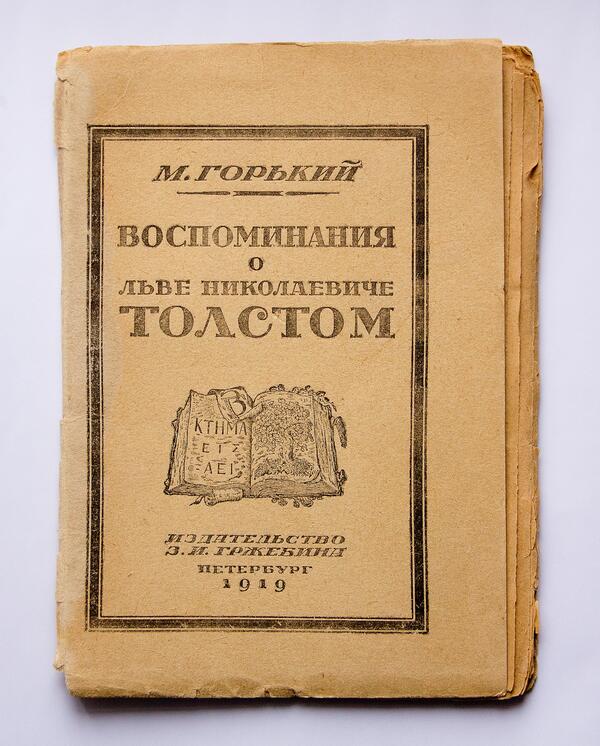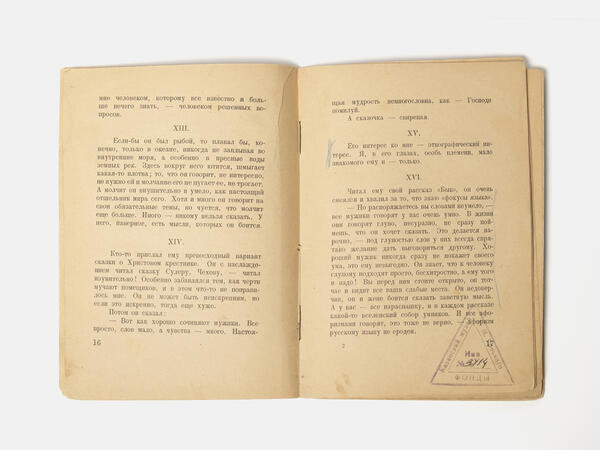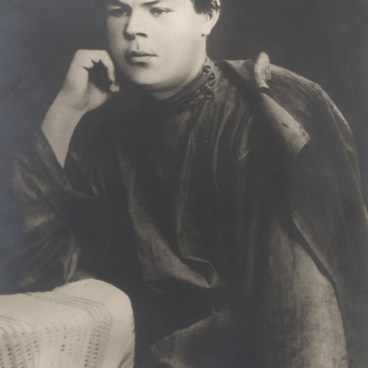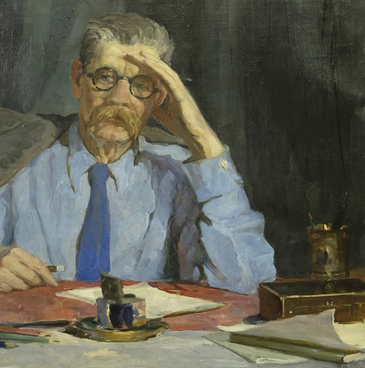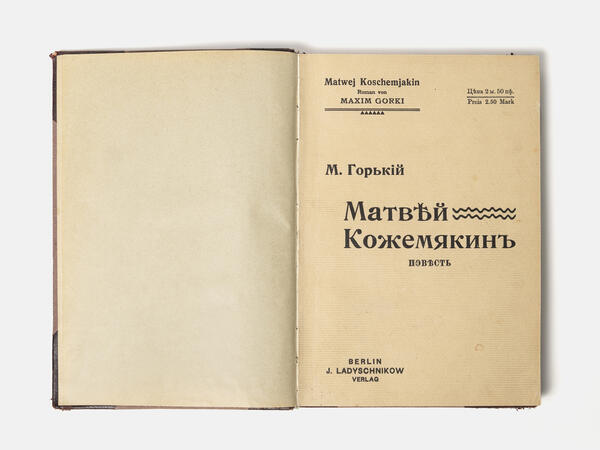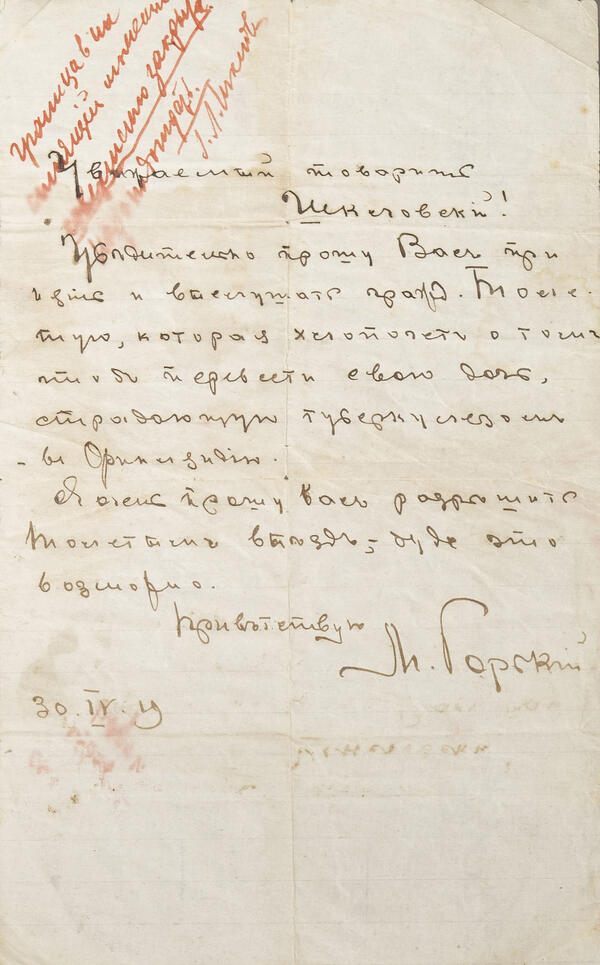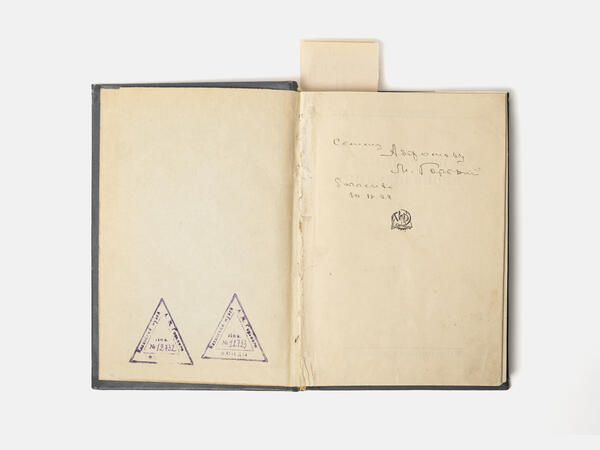AAt the age of 16, Alyosha Peshkov — the future writer Maxim Gorky — came to Kazan. He dreamed of entering Kazan Imperial University and dedicating his life to science.
The young Gorky worked a lot, associated with people from “the lower depths of society” and reflected on social injustice and moral principles. When Gorky was a member of the revolutionary club “Narodnaya Volya” (People’s Will), he was the keeper of a library with banned books. He read a lot of Leo Tolstoy’s works, listened to heated discussions about him and was inspired by his ideas.
Maxim Gorky’s acquaintance with “the lion of Russian literature” took place a few years later. They met about 15 times, and, following Anton Chekhov’s advice, Gorky made notes during those meetings. Tolstoy’s departure from Yasnaya Polyana in 1910 and then his death at Astapovo Railway Station shook Gorky to the core. Gorky wrote about this to Vladimir Korolenko, “A telegram came containing the commonest of words: ‘is dead.’ It struck me to the heart: I cried with pain and anger, and now, half-crazy, I imagine him as I knew and saw him; I am tormented by the desire to speak with him.”
In 1917–1918, Maxim Gorky described in detail his meetings with Leo Tolstoy among his acquaintances and shared that he was working on a book, which he later called “Reminiscences of Leo Nikolayevich Tolstoy”. According to Korney Chukovsky, Gorky ”…as a preacher of activism, he utters… harsh words, … condemns Tolstoy, like he has condemned him many times before; but now (for the first time!) this condemnation is mingled with so much grateful, filial and poetic feelings, that all disapproval and censure have been effaced and erased, … in fact, he worships (to tears) Tolstoy’s every smallest word, …and writes about him as his dearest person, and feels orphaned without him.”
Another interesting detail about the memoir is that it features an episode from Peshkov’s years in Kazan about his work as a gardener and a street sweeper, which he mentioned once in a conversation with Tolstoy. While living in Kazan, Peshkov worked for some time for the French general Kornet’s widow:
